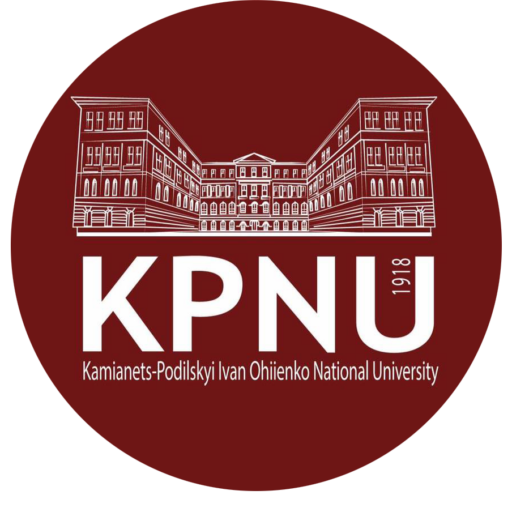Ярослав Казмірчук
(Хмельницький національний університет)
Науковий керівник: О. В. Магдюк, кандидат педагогічних наук
THE CHANGE OF THE ENGLISH LANGUAGE UNDER THE INFLUENCE OF TECHNOLOGICAL PROGRESS
English language in the digital age has evolved significantly, from radio and TV in rural areas to social media and online platforms. TV shows and films aid oral skills, while digital platforms introduce informal elements like abbreviations, reflecting online communication styles. Concerns about declining language proficiency, especially among youth using informal writing in academic and professional settings, exist. Yet, the global impact of online communication emphasizes the vital role of English proficiency across education, business, and daily activities like online banking and shopping.
According to the latest researches, students in rural areas enthusiastically use radio to learn English, preferring channels like All India Radio, BBC and Voice of America to improve vocabulary and pronunciation. Television programs, including news, serials and English-language movies, further improve students’ speaking skills. The emergence of new lexemes, acronyms, and expressions mirrors technology’s profound impact on English. Some argue brevity affects quality and perceives a decline in proficiency, while others attribute it to ‘generational linguistic devastation’ from social networks. Social media progress also alters word meanings, leading to text-speak use in academic work and prompting educators to stress Standard English’s importance for success [1, p. 2-7].
In their professional roles, Generation Y demonstrates a propensity for employing syntactical and lexical simplification, as well as the use of acronyms and shortened English language forms, such as ‘b4’ for ‘before’ and ‘u’ for ‘you’, compared to baby boomers, indicating a tendency towards innovation and efficiency in communication styles. [2, p. 1932-1934]
Researchers discovered that 64% of students utilized casual academic writing, 50% used bad mechanics (grammar, punctuation), 38% used text shortcuts, and 25% used emoticons [2, p. 1935]. For example, in several studies, researchers polled instructors, students, and parents regarding the importance of good composition in everyday life. According to the data, 92 % of 2,462 instructors agree that successful writing is critical to life achievement [2, p. 1935].
Digitization and online communication, especially through social media, have broadened global communication, popularizing novel and shortened writing styles like ‘U’ for ‘you’ and ‘C’ for ‘see’, primarily among young people, particularly university students, who are transferring these informal styles to formal writing environments.
Social media has spurred the emergence of a short-term dialect known as Textese, Text-speak, or Internet slang, predominantly used by the net-generation in both private and public online interactions, characterized by truncated content and incomplete sentences.Text-based mirrors spoken conversational language and is characterized by the use of acronyms, simplified spelling, and structural adaptations such as omitted letters and substitutions, primarily aimed at efficient typing on mobile devices and facilitating short online conversations.
Educators are concerned that abbreviated content rampant with misspelled words and grammatically incorrect sentences are creeping into students assignments, which blurs the distinction between formal and informal writing. The influence of informal online communications is evident in students’ tendencies to avoid higher-level vocabulary, experience difficulty recalling Standard English, engage in informal writing with incorrect mechanics, text shortcuts, and emoticons, indicating a growing trend towards disregard for correct spelling, grammar, and punctuation [3, p. 2-3].
Researchers examined 858 extracts from English Language examinations to assess changes in formality levels in sixteen-year-old students’ writing between 2004 and 2016, revealing a trend towards increased informality, particularly noticeable among low-achieving students. Moreover, the English vocabulary is expanding rapidly with the continual introduction of new technology-related terms, many of which enhance clarity, creativity, and ease of expression [3, p. 3-4].
The global reach of online communication has significantly contributed to the spread of the English language, primarily due to its adoption as the primary language for technological advancements, despite challenges such as language barriers and imperfect translation software, emphasizing the continued importance of basic English proficiency for effective online interaction. The influence of technology and the internet on modern English is evident through the introduction of jargon vocabulary, the evolution of word meanings like ‘mouse’ and ‘keyboard,’ and the creation of phrases that bridge global interactions on social media, unifying diverse individuals from around the world [4, p. 18].
Thus, English in the digital age has evolved significantly, adapting to digital tools’ influence from radio and TV to social media and online platforms. The widespread use of abbreviations and informal language in fast-paced online communication raises concerns about declining proficiency among youth. Educators stress standard English for success in various contexts. Despite challenges, English remains crucial globally, balancing innovative styles with linguistic norms for meaningful interaction in modern communication.
REFERENCES
- Technological Innovations and English Language: A Study in Influence. URL: https://www.academia.edu/67607083/Technological_Innovations_and_English_Language_A_Study_in_Influence
- Changing Times and Changes in the English Language: The Impact of Internet and Internet Language on Standard English Language.URL: http://sumc.lt/index.php/se/article/view/1683
- The Influence of Technology on English Language and Literature. URL: https://files.eric.ed.gov/fulltext/EJ1259632.pdf
- The Influence Of Online Communication On The English Language In Real Life. 3-32 URL: https://www.ijeltsjournal.org/wp-content/uploads/2023/01/Paper-5_Adnan-Ahmed-Sultan.pdf
